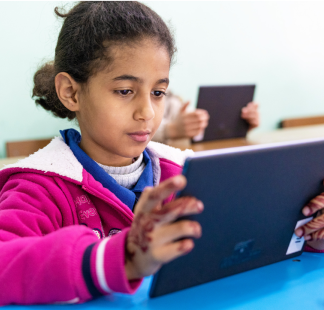Displaying 1 - 12 of 16
05 Jan 2026 - 26 Sep 2026
Blended
This innovation challenge focuses on mobilising the creativity of young people to apply data science and visualization techniques to uncover “digital…
Languages:
- English
15 Apr 2026 - 13 May 2026
Online instructor led
School connectivity involves more than simply providing Internet access to schools; it is about developing connectivity models that are financially,…
Registration:
Open until 25 Mar 2026
Languages:
- English
Open
Online self-paced
This training course empowers start-up and scale-up women entrepreneurs by developing green digital entrepreneurship knowledge and skills in order to…
Languages:
- English
05 Jun 2026 - 15 Jul 2026
Online instructor led
Rapid development of digital technologies provides new opportunities for public policy. Technologies such as artificial intelligence, e-government…
Registration:
Open until 17 May 2026
Languages:
- English
24 Aug 2026 - 28 Aug 2026
Face to Face
Este curso ofrece una visión integral sobre el papel estratégico de la infraestructura de fibra óptica en el desarrollo digital de países emergentes…
Registration:
Open until 22 May 2026
Languages:
- Spanish
Open
Online self-paced
This self-paced online course on inclusive digital communication during crises and emergency situations has been developed in response to the COVID-…
Languages:
- Arabic
- English
- French
- Spanish
05 Oct 2026 - 16 Nov 2026
Online instructor led
Digital technology is becoming important in addressing sustainable development challenges. This course introduces participants to the challenges of…
Registration:
Open until 13 Sep 2026
Languages:
- English
30 Oct 2026 - 17 Dec 2026
Online instructor led
Rapid development of digital technologies provides new opportunities for public policy. Technologies such as artificial intelligence, e-government…
Registration:
Open until 11 Oct 2026
Languages:
- English
Open
Online self-paced
The training course aims at raising awareness and increasing the capacity of ITU members, stakeholders and policy-makers to address the two global…
Languages:
- English
- French
- Spanish
Open
Online self-paced
Information and communication technologies (ICTs) have become a part of everyone life as the primary means for communications, information sharing,…
Languages:
- Arabic
- English
- French
- Russian
- Spanish
Open
Online self-paced
Every day we see how Information and Communication Technologies (ICTs) impact our lives and participation in society by the way we work, learn,…
Languages:
- Arabic
- English
- French
- Russian
- Spanish
Open
Online self-paced
One of the many barriers that persons with disabilities face in accessing employment opportunities is that many career sites and job portals do not…
Languages:
- English




